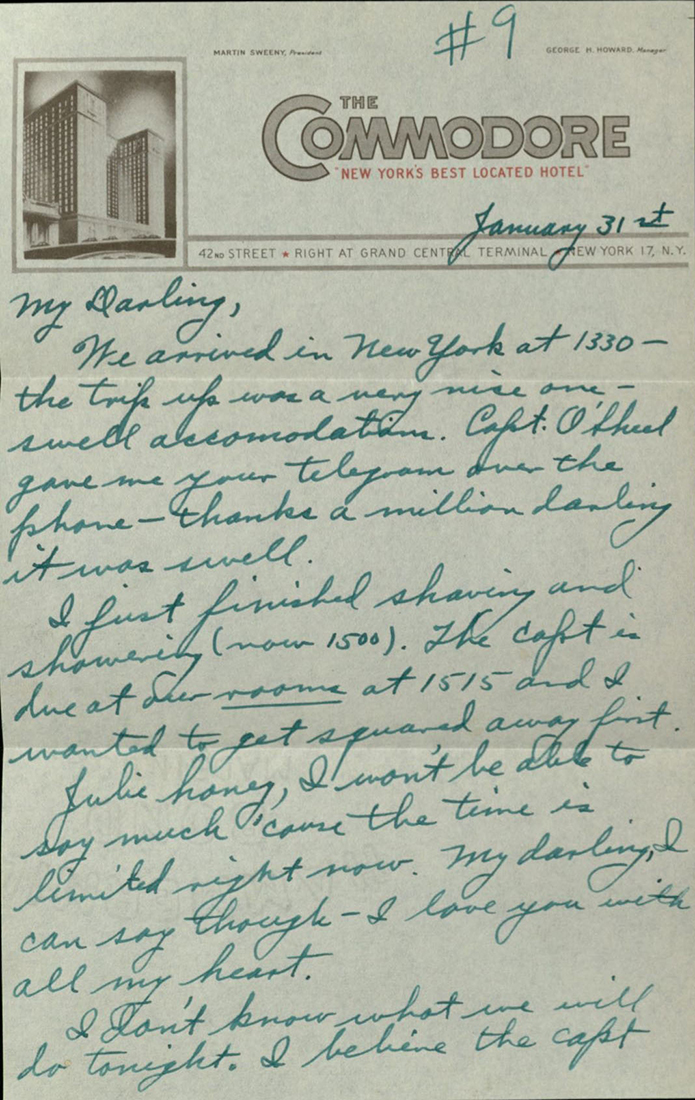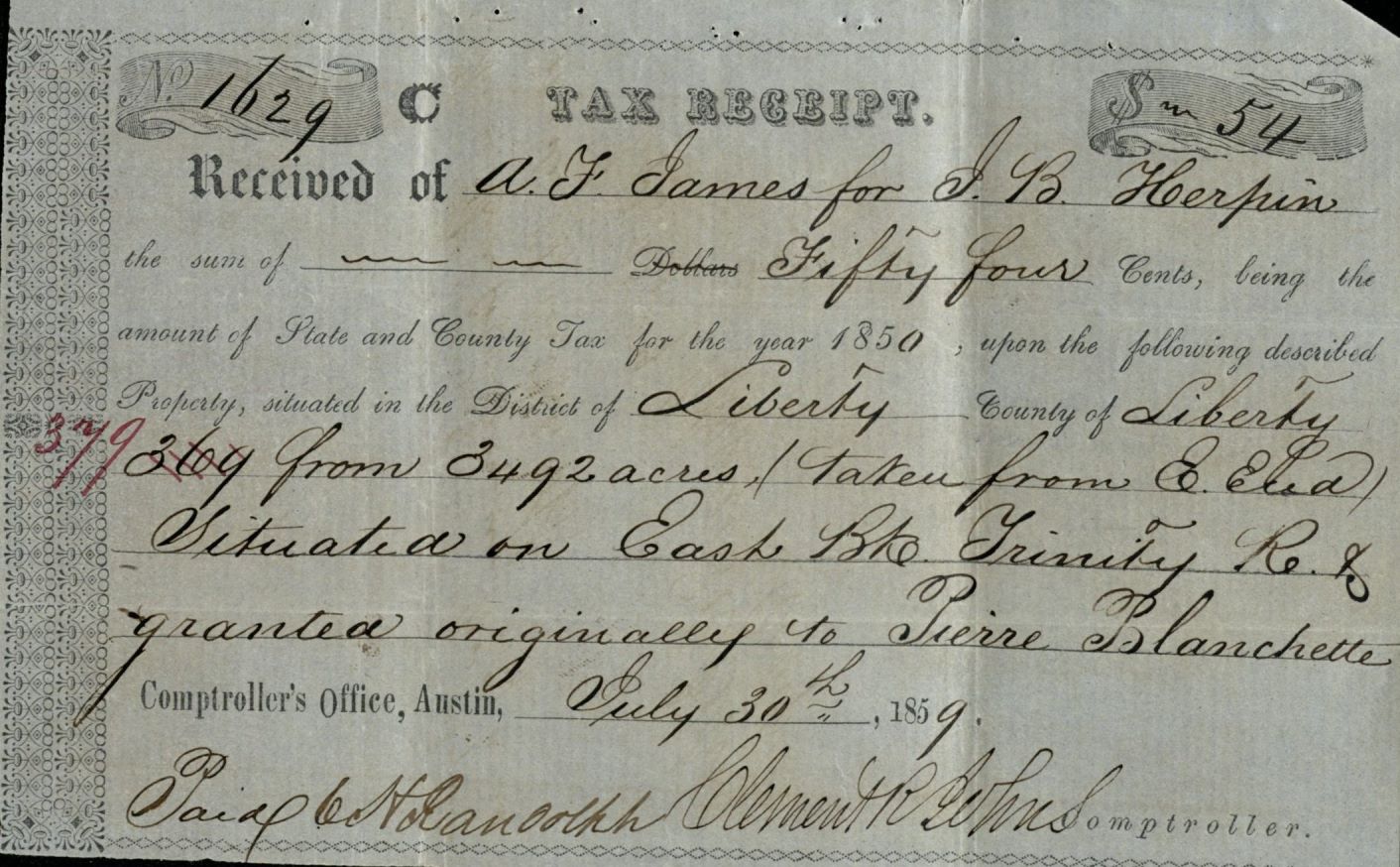By Amanda Gesiorski, Texas Collection graduate assistant and museum studies graduate student

As impressive as the recent movie Unbroken may be, a better story about a WWII prisoner of war can be found within the Onnie E. Clem, Jr. papers. Not only do we learn about Onnie’s harrowing experience overseas, but we also get a firsthand account of his passionate love affair with his future wife, Julie.
Onnie E. Clem, Jr. was born in Dallas, Texas, and joined the United States Marine Corps in 1938 to see the world. He became a radio operator and was stationed in Peking, China, at the US Embassy. When the United States entered World War II, Onnie took part in the battles of the Bataan and was part of the Bataan Death March. Onnie survived the march only to become a POW at Camp O’ Donnell and Cabanatuan for two and a half years.
On August 19, 1944, Onnie was put into the hull of a Japanese “hell ship” with 750 other American prisoners. Nineteen days later, the ship was hit by an American torpedo. As the ship was sinking, the Japanese tossed a grenade into the hull and shot Americans as they tried to escape. Although injured from the torpedo and shot by the Japanese, Onnie managed to escape and swim three miles to shore, where he was rescued by Filipino guerilla fighters. Onnie was one of only 83 known survivors of this incident. By September 1944, Onnie was on his way back home. A transcribed interview with Onnie from 1972 reveals this harrowing experience.
Onnie’s story does not end there, though. Things heat up when Onnie arrives in San Diego, California, where he meets Staff Sergeant “Julie” Cecile Lorraine Julian, who was a member of the United States Marine Corps Women’s Reserve (USMCWR). She served as secretary to the general in charge of public relations along the west coast in San Diego and later at the office in San Francisco.

Julie’s office coordinated Onnie’s war bond tour in California. When Onnie walked into her office one day, there was an instant attraction. The couple had a whirlwind romance, and when Onnie returned home to Texas in November 1944, there was a passionate exchange of letters. In these letters, we learn about Julie and Onnie’s relationship as well as their social and work lives. We get a glimpse of Julie’s romantic history with other soldiers, and Onnie’s attempt to re-assimilate into civilian life. We also learn that upon returning home, Onnie is plagued by a constant stream of inquiries from people wanting to know if he has news about their loved ones. Also woven within these letters is the life of Onnie’s fellow escapee, Verks D. Cutter, and Cutter’s wife Janet Elliot, including their secret marriage. While Julie, Janet, Onnie, and Verks are friends at the beginning, as the letters continue we learn about a falling out between them. Onnie and Julie marry on July 13, 1945, and move to Texas, where they work and raise two children.
Onnie joined the Marines to see the world, and in that he succeeded—his papers tell that story. The Onnie E. Clem, Jr. papers read like a novel full of passion and drama, but they also provide a unique historical insight into the daily personal, professional, and social lives of two Marines during WWII.
























